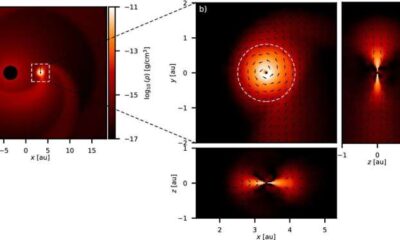Science
Researchers Discover Impact of Ozempic on Alcohol Consumption

Recent research has revealed intriguing findings about the effects of GLP-1 drugs, specifically semaglutide, the active ingredient in Novo Nordisk’s medications Ozempic and Wegovy, on alcohol consumption. Originally developed to treat diabetes, these drugs have gained popularity for their significant weight loss benefits. Users are increasingly reporting a reduced desire to consume alcohol after beginning treatment, suggesting that GLP-1 medications may also influence cravings for substances beyond food.
Several small studies have indicated that GLP-1 drugs can diminish cravings for alcohol, cigarettes, and opioids. This insight opens the door for potential applications in treating various addiction disorders. Researchers have yet to fully understand the mechanisms at work, although it is known that GLP-1s target the brain’s dopamine reward system. They also introduce changes in the body’s physiological processes, complicating the relationship between these drugs and substance use.
Virginia Tech Study Explores Alcohol Processing
A recent study published in the journal Scientific Reports by researchers at Virginia Tech provides new insights into how these drugs affect alcohol processing in the body. Participants in the study consumed three alcoholic beverages over one hour while their blood alcohol levels, glucose, and vital signs were monitored. The findings demonstrated that individuals using GLP-1 medications reported feeling less intoxicated compared to non-users, with their blood alcohol levels rising more slowly.
This delayed effect suggests that the presence of GLP-1s may slow down gastric emptying, causing alcohol to enter the bloodstream at a reduced pace. This phenomenon indicates a complex interaction, as the drug not only alters neurological responses related to alcohol but may also modify how the body physically processes it.
Neuroscientist Alex DiFeliceantonio, who contributed to the study, emphasized the significance of these findings. He noted, “Faster-acting drugs have a higher abuse potential. They have a different impact on the brain. So if GLP-1s slow alcohol entering the bloodstream, they could reduce the effects of alcohol and help people drink less.” This perspective highlights the potential for GLP-1 drugs to serve as a valuable tool in addressing alcohol consumption and addiction.
While the study’s sample size was modest, with only 20 participants, it offers a promising glimpse into the multifaceted effects of GLP-1 medications. Further research is necessary to deepen understanding and validate these initial findings.
As the conversation around Ozempic and Wegovy continues to evolve, these emerging insights into their impact on alcohol consumption may pave the way for innovative treatments for addiction and related disorders. The growing body of evidence underscores the need for ongoing investigation into the broader implications of GLP-1 drugs on human health and behavior.
-

 Science1 month ago
Science1 month agoOhio State Study Uncovers Brain Connectivity and Function Links
-

 Politics2 months ago
Politics2 months agoHamas Chief Stresses Disarmament Tied to Occupation’s End
-

 Science1 month ago
Science1 month agoUniversity of Hawaiʻi Joins $25.6M AI Project for Disaster Monitoring
-

 Entertainment1 month ago
Entertainment1 month agoMegan Thee Stallion Exposes Alleged Online Attack by Bots
-

 Science4 weeks ago
Science4 weeks agoALMA Discovers Companion Orbiting Giant Star π 1 Gruis
-

 Science2 months ago
Science2 months agoResearchers Challenge 200-Year-Old Physics Principle with Atomic Engines
-

 Entertainment1 month ago
Entertainment1 month agoPaloma Elsesser Shines at LA Event with Iconic Slicked-Back Bun
-

 World1 month ago
World1 month agoFDA Unveils Plan to Cut Drug Prices and Boost Biosimilars
-

 Top Stories2 months ago
Top Stories2 months agoFederal Agents Detain Driver in Addison; Protests Erupt Immediately
-

 Business1 month ago
Business1 month agoMotley Fool Wealth Management Reduces Medtronic Holdings by 14.7%
-

 Entertainment1 month ago
Entertainment1 month agoBeloved Artist and Community Leader Gloria Rosencrants Passes Away
-

 Science2 months ago
Science2 months agoInnovator Captures Light at 2 Billion Frames Per Second








